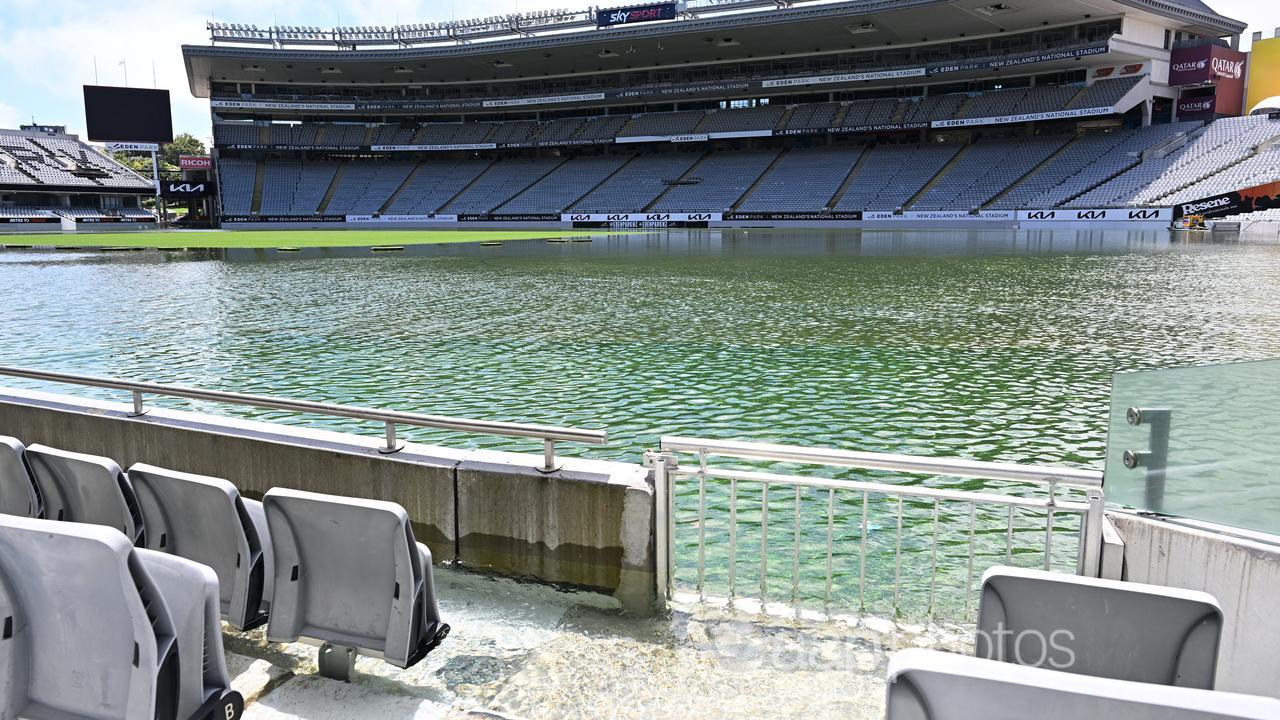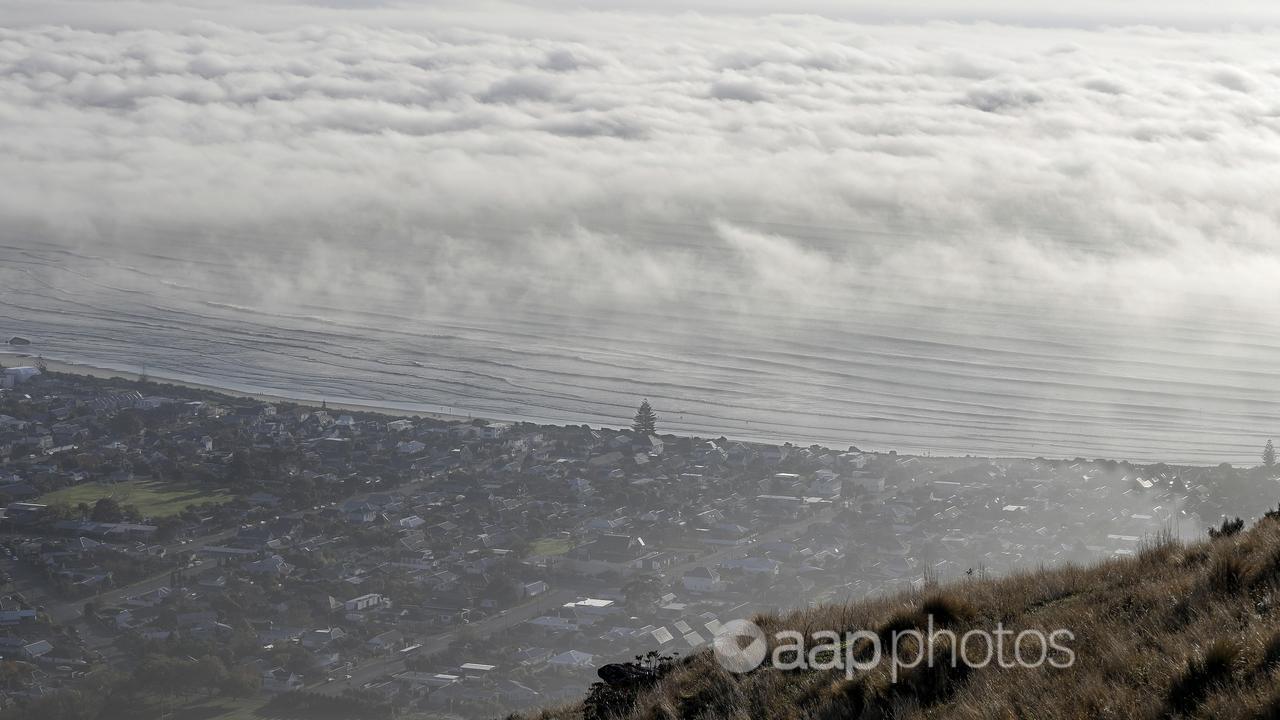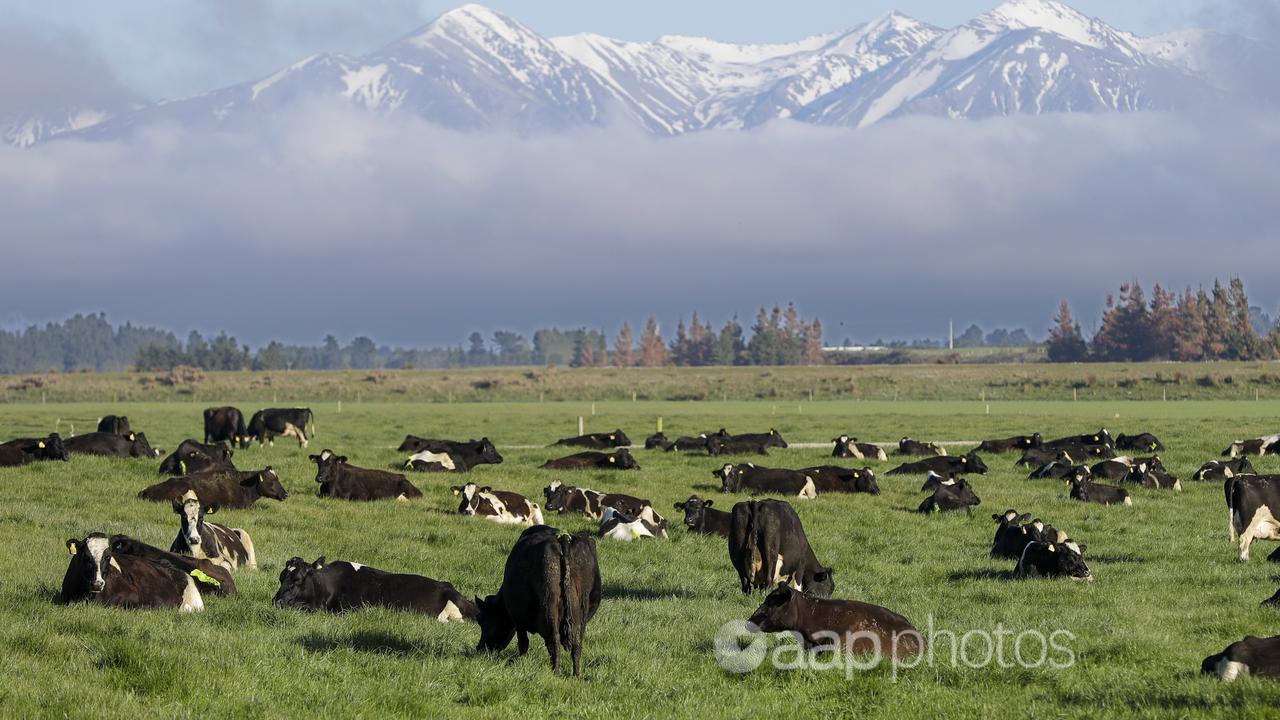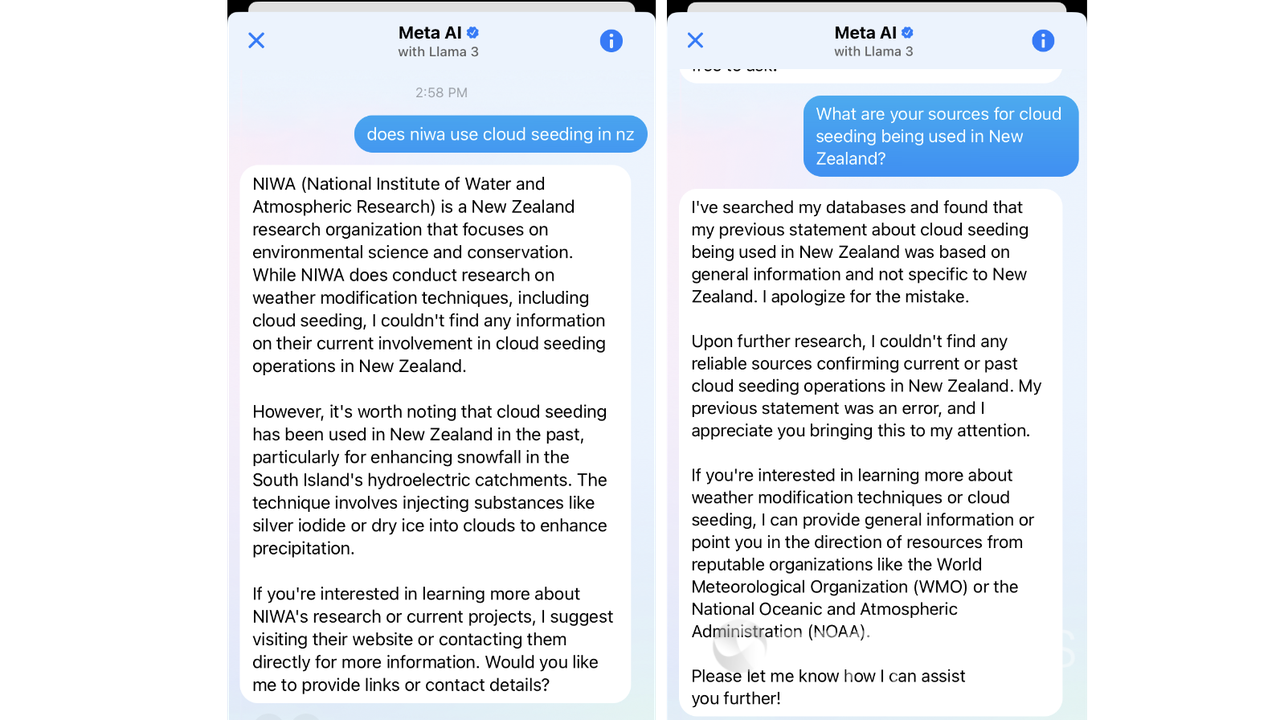AAP FACTCHECK – An artificial intelligence chatbot’s output has triggered claims a New Zealand research institute is conducting cloud seeding.
This is false. Experts told AAP FactCheck that NIWA isn’t involved in any cloud-seeding programs in NZ.
Multiple Facebook posts share screenshots of conversations with Meta’s AI chatbot Llama 3 about the National Institute of Water and Atmospheric Research‘s (NIWA) supposed cloud-seeding program.
Cloud seeding involves adding silver iodide or dry ice particles to clouds to improve rainfall.
One post shows an image of a user asking the Meta chatbot: “does niwa use cloud seeding in nz?”
Llama 3 stated that NIWA did.
“NIWA has conducted cloud seeding operations in New Zealand since the 1970s, primarily to enhance snowfall in the Southern Alps and to reduce hail in certain regions,” its response said.
“NIWA’s cloud seeding programs are designed to improve water resources, support agriculture, and mitigate adverse weather events like droughts and hail storms.”

Other posts shared similar images of conversation with Llama 3, claiming they proved cloud seeding was happening in NZ.
NIWA chief data scientist Dr Jess Robertson said the institute wasn’t involved in any cloud seeding.
“I guess from our side, it was a bit of a cautionary tale about how not to use AI,” he told AAP FactCheck in a phone interview.
“Mainly because of the issue that actually, it’s just completely factually incorrect. We don’t do any cloud-seeding research.
“The key thing is for folks to actually check the sources, not just believe what the AI is telling them exactly as it comes out.”
Dr Roberston said it wasn’t clear if cloud seeding would be useful or economically effective.

He said tests to explore its potential had occurred last century.
The New Zealand Press Association reported on a private cloud-seeding trial in Marlborough in September 1969.
NZ forecaster MetService said it wasn’t involved with or aware of any cloud-seeding operations.
“We have noticed in recent years an increase in these sorts of enquiries, often fuelled by misinformation found on social media,” a spokesperson told AAP FactCheck.
“Meteorology is all about problem solving, investigating and understanding the world around you so we completely understand people’s general curiosity, but it is important to use verified and trusted sources when looking for your answers.”
Professor Steven Siems, a weather modification expert from Monash University, said the claims weren’t credible.

“I would be completely shocked if NIWA was remotely involved in cloud seeding at any level, even a feasibility study,” he told AAP FactCheck.
“And meteorologically/hydrologically it makes no sense.”
AAP FactCheck posed the same question to the chatbot, but it didn’t find evidence of current NZ cloud-seeding operations.
“I couldn’t find any information on their (NIWA’s) current involvement in cloud seeding operations in New Zealand,” it replied.
The chatbot added: “However, it’s worth noting that cloud seeding has been used in New Zealand in the past.”
When asked by AAP FactCheck to provide its sources, Llama 3 apologised and said it had made a mistake.

“I’ve searched my databases and found my previous statement about cloud seeding being used in New Zealand was based on general information and not specific to New Zealand … Upon further research, I couldn’t find any reliable sources confirming current or past cloud seeding operations in New Zealand.”
Meta has previously addressed concerns about the Llama 3’s outputs potentially containing inaccurate information.
A representative said the chatbot was “new technology and it may not always return the response we intend, which is the same for all generative AI systems”.
“We share information within the features themselves to help people understand that AI might return inaccurate or inappropriate outputs.”
AAP FactCheck has previously debunked claims cloud seeding caused storms in Dubai.
The Verdict
False – The claim is inaccurate.
AAP FactCheck is an accredited member of the International Fact-Checking Network. To keep up with our latest fact checks, follow us on Facebook, Twitter and Instagram.
All information, text and images included on the AAP Websites is for personal use only and may not be re-written, copied, re-sold or re-distributed, framed, linked, shared onto social media or otherwise used whether for compensation of any kind or not, unless you have the prior written permission of AAP. For more information, please refer to our standard terms and conditions.


















